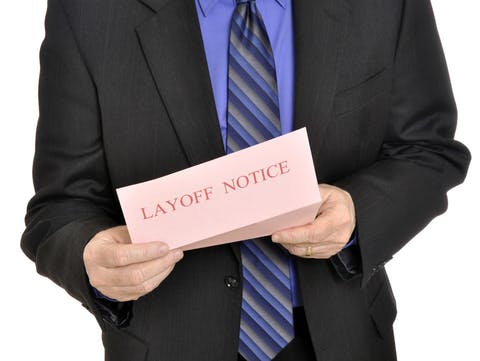I’m sure many of you have dealt with this question before: if we have to reduce staff expense, is it better to reduce hours for many people or to just let a few go?
Nobody loves to have these conversations because nobody like contraction. Still, it’s been an important consideration in all of my jobs in human resources. I’ve always thought that if the drop in revenue is permanent (or unknown), it is better to reduce staff, and to cut back only if the revenue drop is temporary and you know it is coming back.
Layoffs are brutal (especially now when there is still a lot of competition out there) but having a large portion of your workforce trying to make ends meet with reduced income, with no fixed end to the pain, is much worse. Financial strain is one of those things that has a universally negative impact on workplace productivity.
Another nail went into the coffin of cutting hours this week.
What does half time commitment look like?
I was recently talking with a friend about his job. The organization he worked at had to move him and another employee to half time to deal with some decreasing revenue. This was not expected to be a temporary arrangement, so the assumption was that he would get a second part time job to go along with this one. Not good news.
I have taken reduced or deferred compensation in the past but I’m in a different spot than him. I’m in a DINK (double income, no kids) household. He has a family and was the sole earner. So he’s got to figure out a way to make a good portion of his lost income back in the extra time he has.
This isn’t just another sad story though (one that’s been played out thousands of times). What happened illuminated the value of thinking through the implications of cutting hours versus laying off staff.
He told me that when he was working full time, he was consumed with the work. In addition to the 50 hours a week he was typically putting in, he would also have some mental labor of a couple hours each day in addition. Spending 30 minutes before bed reading a book that enriches your career or going to a networking breakfast before work all add up to a lot of committed hours that employers don’t see but benefit greatly from.
Since he has gone to half time though, you’d expect for him to do about half the job he was doing before, right? Not so fast.
A reduction in more than just hours
As soon as he is done doing his work, his mind shifts to finding an additional job or more sources of income. He spent the mental energy he used to use on work problems on problems that are much more serious: how will he make it come together next month financially. He works on resumes instead of work, and networking for himself instead of his job. And while I’m sure he works as hard as he can while at work, you’ve got to think that at some point, productivity takes a major hit. Employees are still human.
The major point here is that reducing hours can be seen as being the more palatable solution. I know I’ve considered it in the past for (partially) those same reasons. We want to help people and the philosophy is any job is better than no job.
While that may be true for a short period of time, it doesn’t seem to end up working for any prolonged period of time. Both the employer and employees get the raw end of the deal. Employees are stuck trying to decide between trying for part time positions (most of which have unfriendly hours) or trying to go find another full time job. At the same time, they aren’t able to give even half the effort they were able to before.
The better solution is still (unfortunately) reducing staff
So going back to my friend, both he and a coworker went to half time. They both put in 50 hour weeks and 10-20 hours of outside of work time into the job. Now they both work 25 but don’t do the stuff outside of work time because they have to supplement their income as well. And as time progresses, I imagine their productivity continues to drop as the part time work continues.
Keeping one of them at full time and letting the other go would certainly would have been good for both the company and the employee who stayed, and it might end up being the right long term move for the person who was laid off (even with some significant up front pain).
